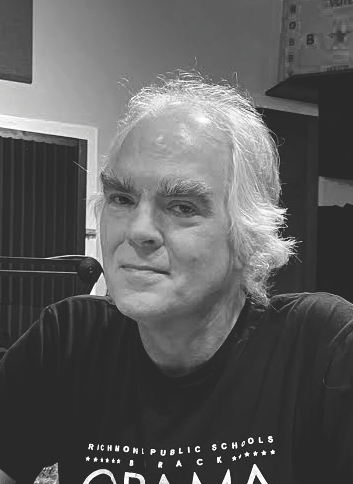Daniel Bachman straddles the traditional and the experimental.

Daniel Bachman
Photo by Jen Fariello
Daniel Bachman wants it both ways. “I’ve always been into traditional American music as well as contemporary experimental music,” says the 29-year-old performer, whose finger-picked acoustic guitar and banjo instrumentals—traversing between classic Piedmont blues covers, ruminative Americana, and atmospheric soundscapes—have won rave reviews from the likes of Rolling Stone, The Guardian, and National Public Radio. Atmospheric tunes like “New Moon” and old-timey workouts, such as “Wide Oak,” prompted NPR to enthuse that Bachman isn’t just playing guitar, “He’s sculpting sound.”
“Before I was a better guitar player, I relied heavily on abstractions,” he says. “And then I got to be a better player, so I could fall back on [technique]. Now I feel good about doing both.”
Growing up in Fredericksburg, Bachman came late to the guitar, when he was around 17, but music was a constant. Spurred on by the work of legends such as Dock Boggs and Roscoe Holcomb, his first axe was the banjo. “Both of my grand-fathers were professional musicians at different times in their life. My family listened to music a lot. My grandmother’s family would be out playing fiddles and banjos and stuff, but we also listened to opera; it’s all about self-expression, really.”
As his career unfolds, Bachman prompts continuous comparisons to the late John Fahey, the guiding light of the American Primitive style of folk guitar. “I became aware of John Fahey right after I had this epiphany that you could tune the guitar like a banjo,” he says with a laugh. “And then it was, ‘Oh wait, someone’s already been doing that for forever.’”
Bachman’s real hero was a Fredericksburg guitarist, the late Jack Rose. “I used to travel quite a bit between New York and D.C. to see him play at different festivals,” he says. “At the end of his life, I got to open for him a couple times, and my sister and I got to design his very last record cover. He’s huge for me in what he represents and where he came from.”
The fresh-faced Bachman is, surprisingly, a seasoned road vet. He has been a touring musician for more than a decade, crisscrossing the U.S. regularly and performing in Europe, Australia, the Yukon, and Istanbul. “I dropped out of high school and went on the road with guys older than me,” he says. “And while I definitely held my share of jobs along the way … there was a four-year period where I was making my sole income off of music.”
He almost immediately began recording his original instrumental songs, first for small-press indie labels and later on more established imprints like Tompkins Square and Three-Lobed Recordings, the North Carolina company that has issued his most recent work. His self-described “psychedelic Appalachian” sounds have won notice and even awe—you can find many expansive online essays elaborating on the transformative nature of his music—but it’s taken time, he says. “In the beginning, I was too straight for the weird folks, but too far out for the folk people,” says Bachman. “But now I kind of have this ability to move between worlds. I’ve even played with jazz musicians and a classical cellist. At this point, I can model a set any way I need to.”
New England has become his most lucrative market, but he doesn’t tour as much as he used to. Now residing in Charlottesville, he has a full-time, and flexible, job as a gardener and has developed a keen interest in Southern folklore. He is currently applying for grants to research Virginia’s rich folk music past.
Bachman has also performed long enough to know the commercial limits of his chosen genre. “You can’t play instrumental music and go to Buffalo on a Monday night and expect a crowd,” he says with a laugh. “You’ve got to be realistic and know what’s going on.”
The guitarist’s excellent and highly acclaimed 2018 release, The Morning Star, reflects his shifting moods. It incorporates found sounds—chimes, bells, phone calls, sirens, wind—to build a wordless landscape that invites reflection and introspection. “It really wasn’t a premeditated thing,” he says. “I just had all of these field recordings, and I put it all together, and it actually reignited my interest in playing guitar.”
The new record is “all over the place,” Bachman says. “But that’s kind of how my interests are. I do really dig that composed long-form guitar stuff, but that’s not all there is in the world. It’s definitely not all there is for me.” DanielBachman.com
This article originally appeared in our February 2019 issue.








